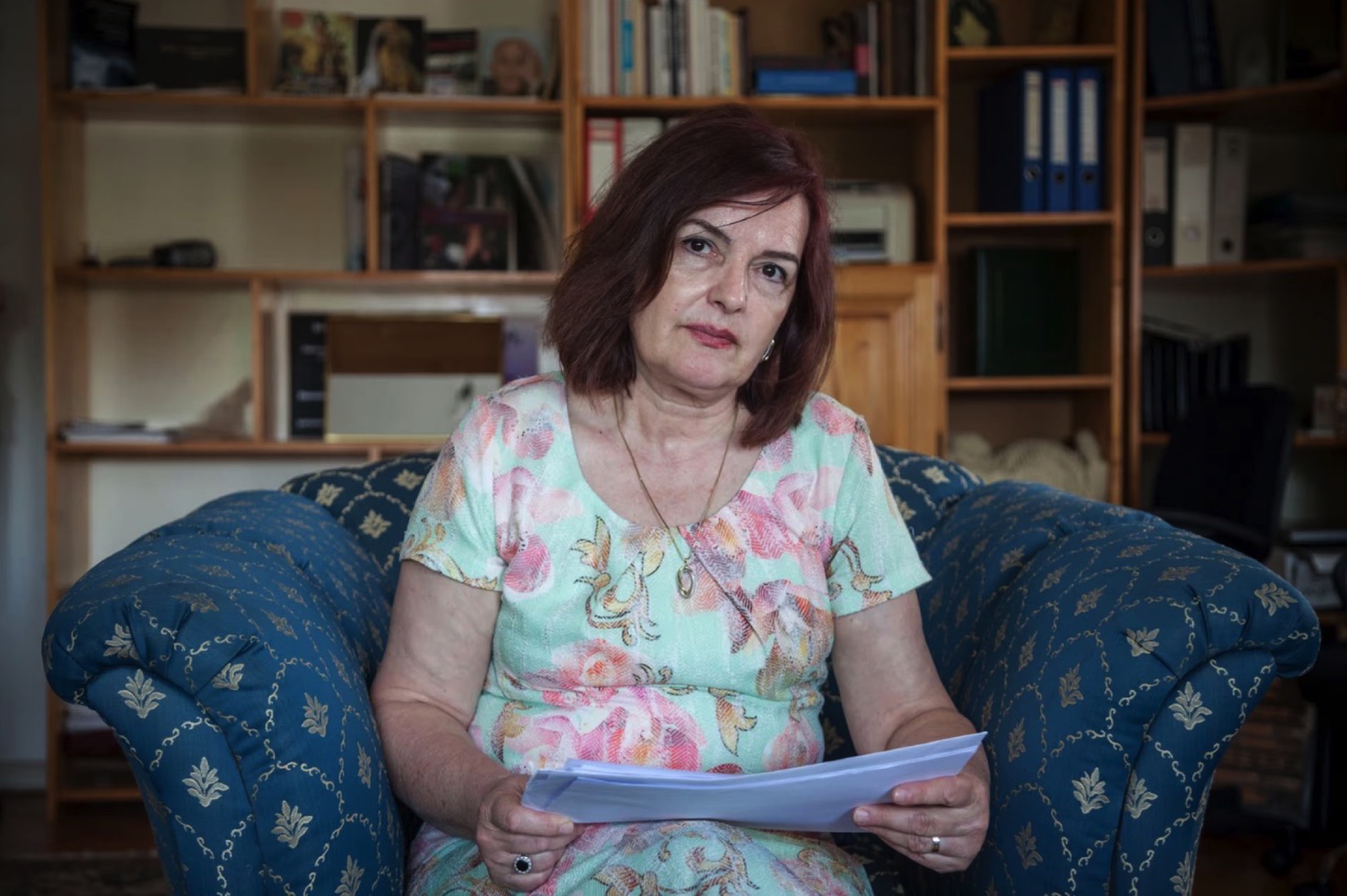
Veprore Shehu, Executive Director of Medica Kosova, at work
Text: Veprore Shehu, M. Zisso; Photo: Archive
1999 – their only choice was silence
It was a frigid morning on December 22nd, 1999, when I joined the organization Medica Kosova. The war had ended a few months before. Devastated by the loss in my family, I wasn’t quite prepared to face the scale of that pain. As I entered the gloomy building, another wave of sorrow gripped me. There, I began to learn firsthand what awaited me.
The women I met were raped in their homes, often in front of their families and children. Many were held in rape camps, and some were in their early teenage years. The others were killed after having been raped and mutilated. Rape was used as a weapon of the war. Most of the rapes happened during the 78 days of the 1999 NATO air campaign against Yugoslav forces.
Days later, I found myself driving a 17-year-old survivor to give birth after a rape. Her story encapsulated the challenges we faced: protecting her painful truth from her patriarchal family. We had to devise a plan to tell her family that she had a serious illness. But what illness? One of our team members, mostly women, suggested kidney problems – something that could explain the growth of her belly. This way, her father and brothers would not realize she was pregnant; only her mother would be aware of the truth.
When the baby girl was born, the mother had no doubt: she should be given up for adoption. She was one of the first children to be born of rape, part of a generation of invisible children who would never confront the truth and reality of their biological parents.
Those who failed to hide the truth would face divorce, domestic violence, and stigma.
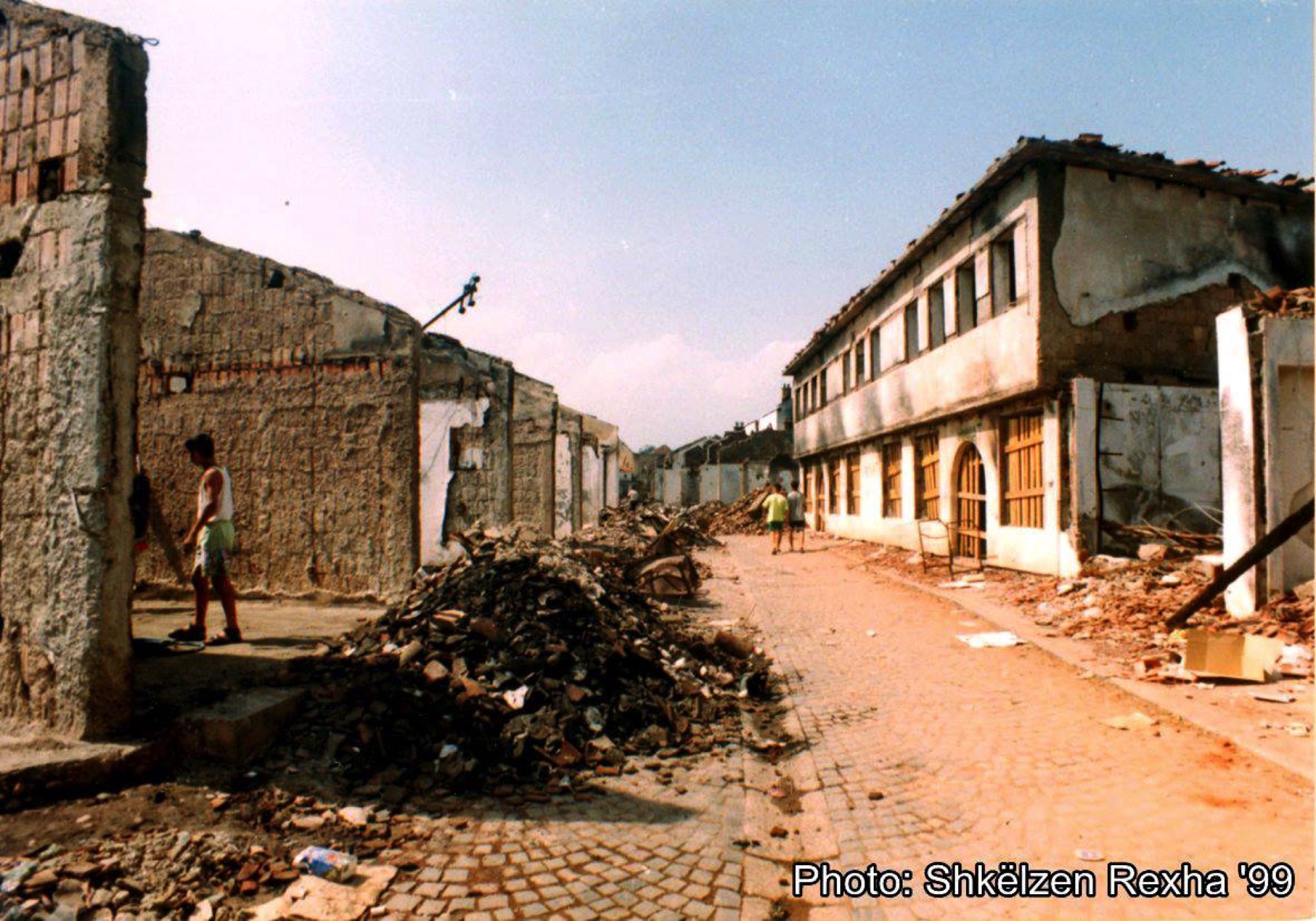
Ruins in the aftermath of war
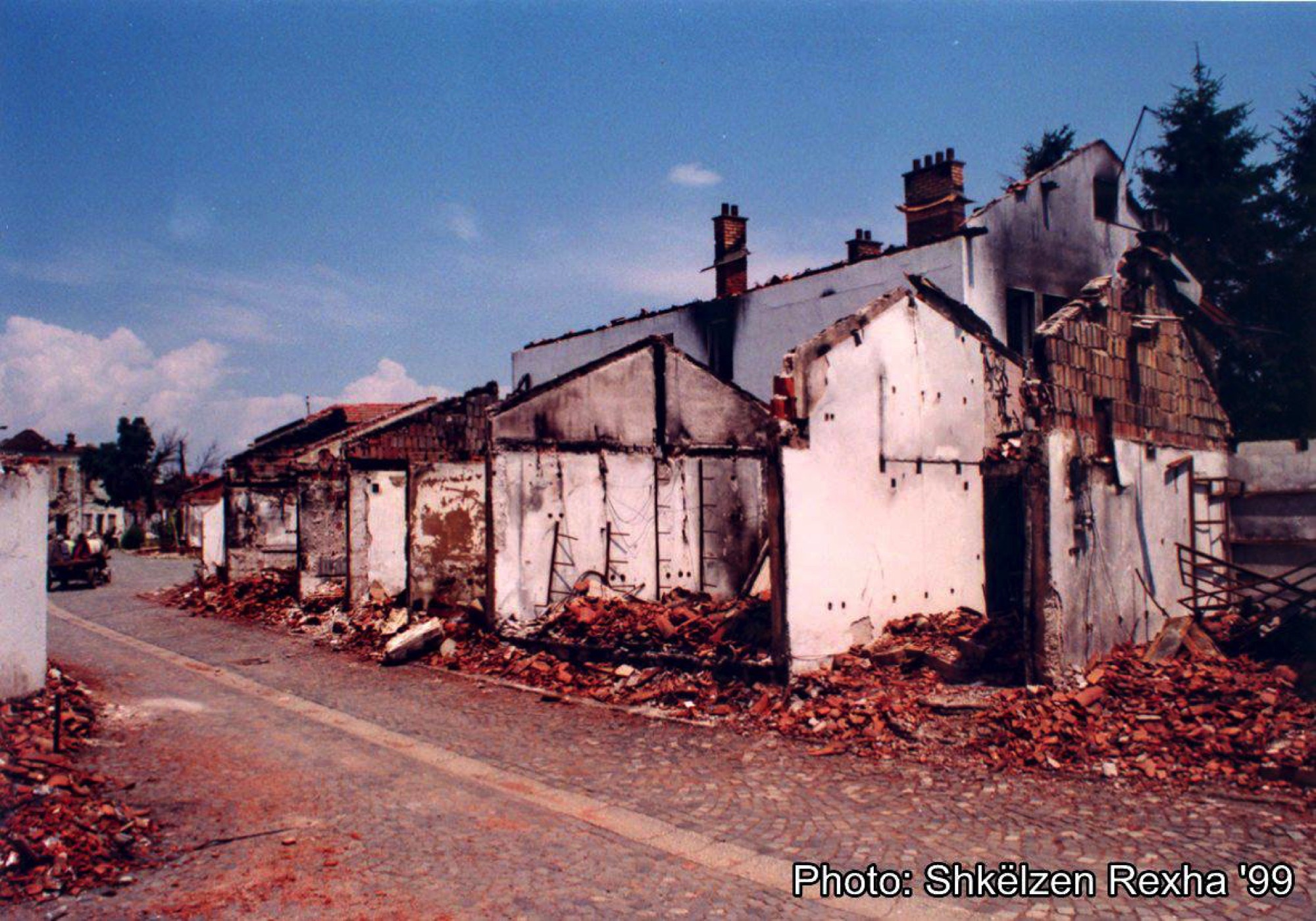
Gjakova 99
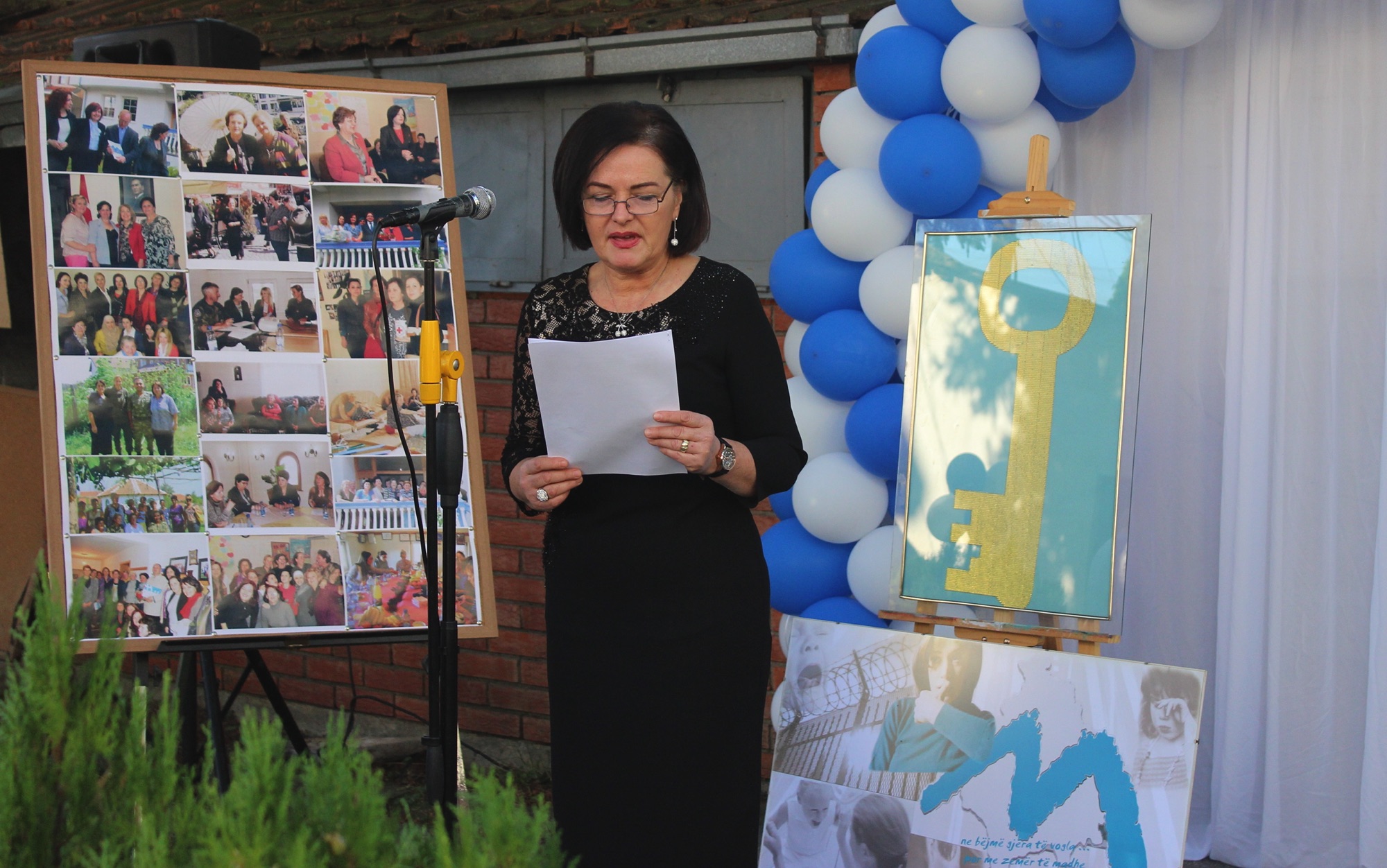
The fear of family backlash can prevent many survivors from seeking help, so we must navigate these complexities with sensitivity, based on their circumstances and needs. Their only choice was silence.
Many of them faced deep trauma, with some tragically taking their own lives in the darkness of their suffering. The Kosovo war of 1998-99 left painful narratives in the country, with an estimated 20,000 women and men subjected to sexual violence and torture.
Survivors faced not only the trauma of their experiences but also societal stigma, leading many to suffer in isolation. Many survivors coped with profound sorrow for the families they lost, feeling as if they bore not only their own pain but also the weight of collective grief. Cultural norms in a patriarchal society surrounding honor and shame created an environment where victims felt compelled to conceal their experiences, often going undercover to protect themselves from the stigma associated with being a survivor.
Organizations like Medica Kosova and the Kosovo Rehabilitation Center for Torture Victims (KRCT) have been at the forefront of efforts to lift the rubble of silence and support survivors in their healing journeys by providing psychological counseling, legal assistance, and economic support. However, the battle for recognition was fiercer than one might imagine, taking more than a decade and a half until they were officially recognized as victims and became eligible for a pension.
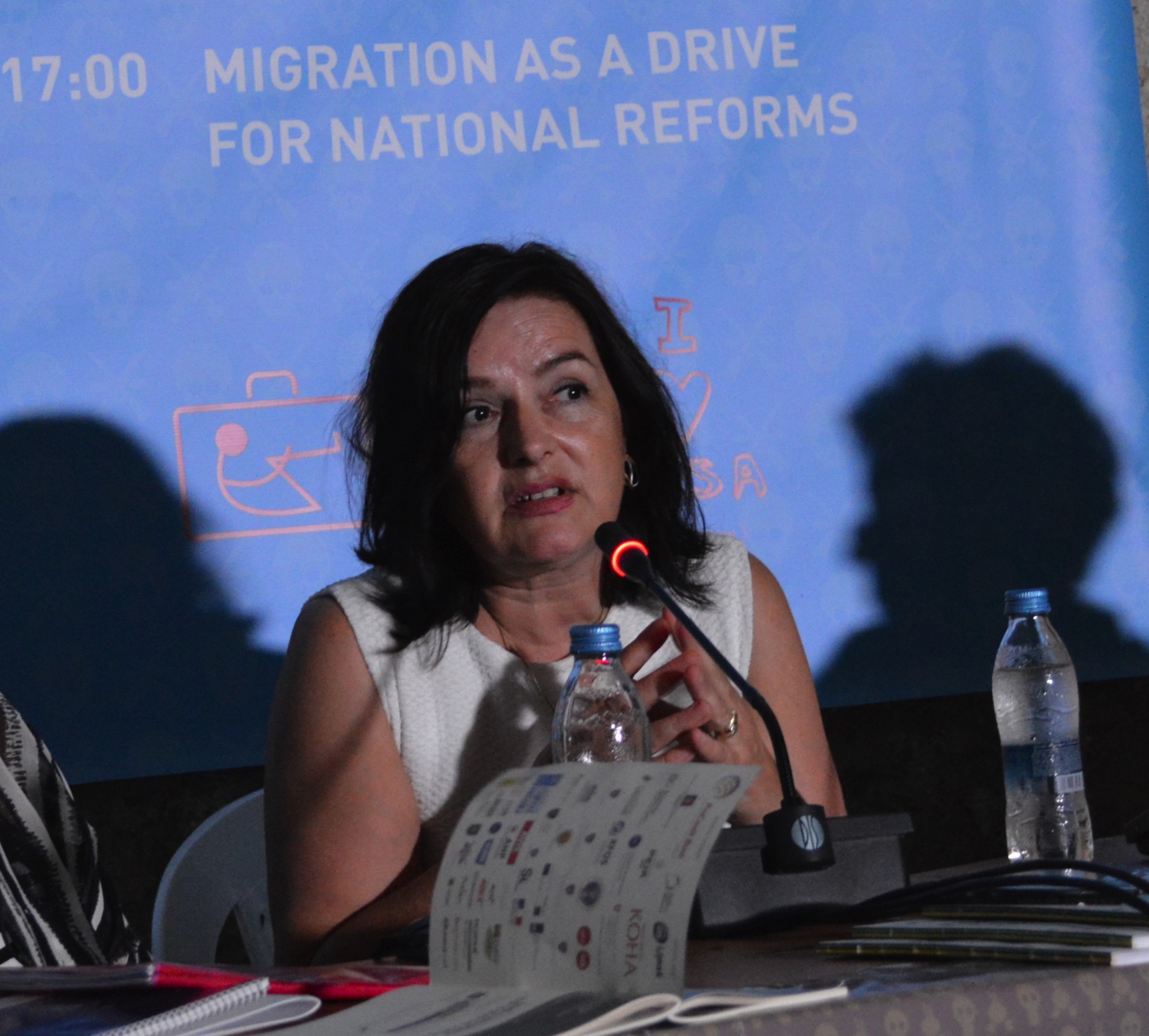
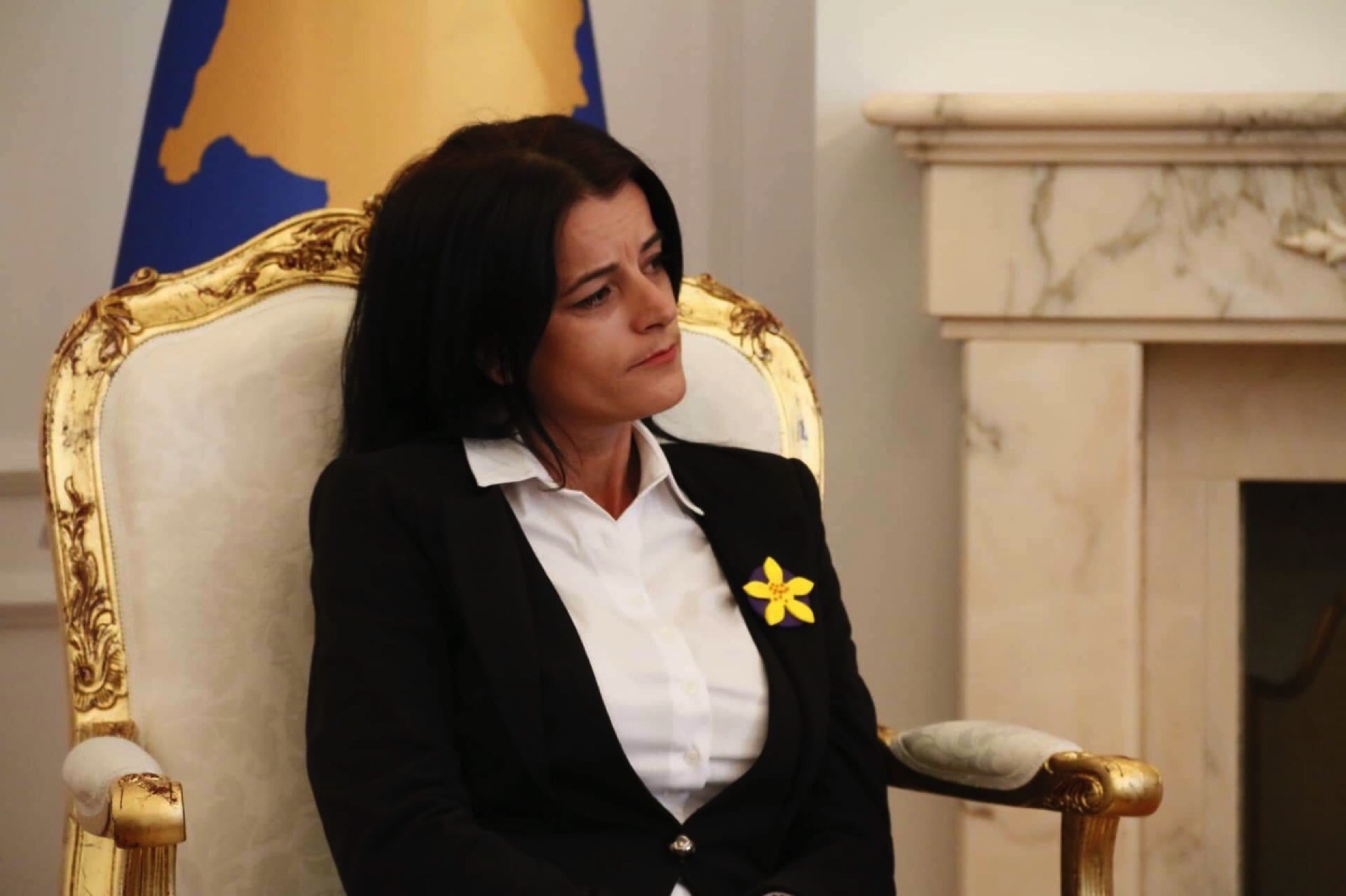
Vasfije Kasniqi Goodman
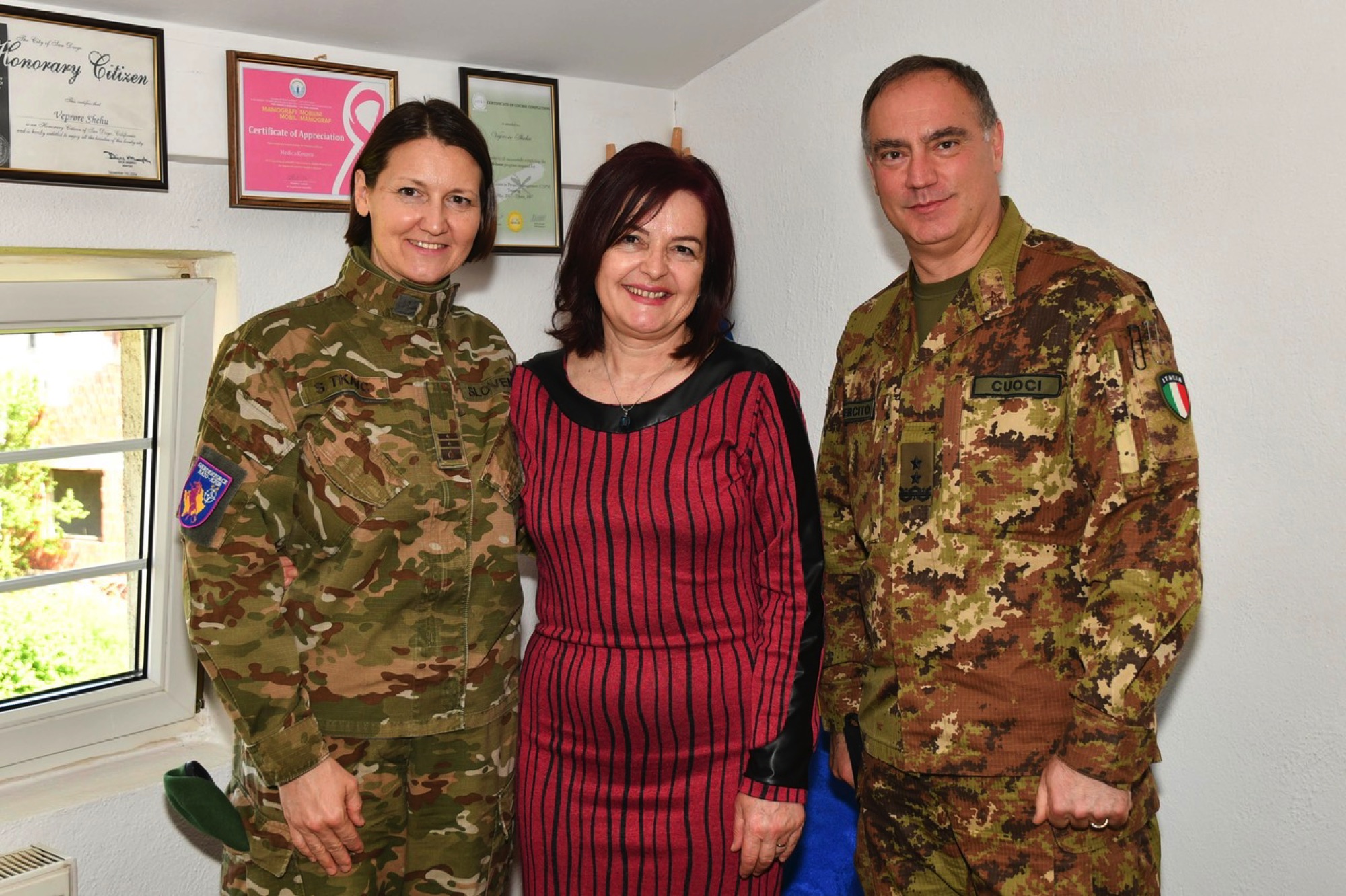
Veprore Shehu with Italian KFOR
2012 – the trauma being acknowledged by law
While struggling for recognition and justice, on March 8th, 2012, we made significant progress in gaining public attention. With the slogan “We don’t want flowers, we want justice”, dozens of women’s organizations successfully pushed legislators to fulfill their legal and moral obligations.
For over a decade, there had been no convictions for rape, neither by the International Tribunal for the former Yugoslavia nor in local courts in Kosovo or Serbia. It was time for the Kosovo parliament to pass a law recognizing the thousands of rape survivors in Kosovo.
Those excluded women were reminders of the brutal 1998-1999 campaign ordered by the dictator Slobodan Milosevic, which killed thousands of civilians, and saw women raped and homes destroyed.
Beyond financial assistance, incorporating conflict-related sexual violence (CRSV) survivors into this law allows the government to formally acknowledge the specific traumas and injustices they endured during the war, which is vital for the survivors’ restoration of dignity.

Vasfije Krasniqi’s story – empowering others
While battling for recognition, a voice and a face emerged from the darkness: Vasfije Krasniqi Goodman, the first survivor to publicly share her story without covering her face or distorting her voice. With the support of KRCT, she firmly stood in front of Kosovo public; to not only share her story but to also request more engagement and support from institutions in pursuing justice for survivors.
Krasniqi Goodman was only 16 and living with her family in the small village of Vushtri municipality when a Serbian Police Officer and a Serb civilian took her to the village of Babimoc, which was populated primarily by Serbs, and raped her.
Her determination to seek justice for this horrific crime and to prosecute the two identified perpetrators led her through a complex and often disheartening judicial process.
On April 4th, 2013, the court in Kosovo, staffed by international judges of the EU Rule of Law Mission, commenced its judicial review of the case. Within just one week, the court heard testimonies from twelve witnesses. However, the judges concluded that the methods used to identify the men – primarily through photographic identification – contained significant irregularities, rendering this form of evidence inadmissible.
Despite the acceptance of the evidence by the Kosovo Court of Appeal and the sentences of 12 and 10 years in prison given to both perpetrators, the verdict was annulled following their complaint at the third level of justice. Although Krasniqi Goodman’s legal battle marked a painful turning point and highlighted the vulnerabilities of survivors seeking justice, her courage became a source of inspiration for others. Notably, it motivated Shyhrete Tahiri Sylejmani, another survivor of sexual violence during the Kosovo war, to pursue legal action against her perpetrators.
Since then, and as a member of KRCT, the SEMA Network, and its Advisory Committee, as well as a Special Envoy to the President of Kosovo on CRSV, Vasfije Krasniqi Goodman has been on a mission, advocating for survivors in Kosovo and around the world, demanding justice for the crimes committed during the war in her country.
Both Vasfije and Shyhrete have emerged as powerful voices for the voiceless, reaffirming the belief that the birth of words can help alleviate the agony of pain. By courageously sharing their stories, they not only confront their trauma but also create space for others to do the same.
Now, most of them have largely recovered from the physical losses and pain because they were resilient in order to raise their children and keep their family together. But the women who were raped are still heavily affected because their well-being was forever stolen from them.
We continue to battle for justice while Serbia, under President Aleksandar Vucic – who was an aide to Slobodan Milosevic – has consistently tried to avoid admitting responsibility for war crimes in Kosovo and the former Yugoslav republics.
 VEPRORE SHEHU, is the Executive Director of Medica Kosova, an organization providing psychosocial, legal, and economic support for victims of sexual violence in the 1998-99 Kosovo war.
VEPRORE SHEHU, is the Executive Director of Medica Kosova, an organization providing psychosocial, legal, and economic support for victims of sexual violence in the 1998-99 Kosovo war.

